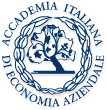L’approccio co-evolutivo alla sostenibilità delle destinazioni turistiche. Evidenze dalla "Convenzione delle Alpi"
Recently, the co-evolutionary approach has been used in the tourism management literature to better understand the evolutionary dynamics of tourism sector and destinations. Some studies highlight a causal relationship between these dynamics proposing the co-evolutionary approach of the relationship among tourism firms, territories, and tourists. This framework conceptualizes the sustainability of destinations as the result of effective multi-level co-evolutionary adaptations, identifying promoting mechanisms that require synergistic actions between tourism firms and institutions. However, the role of institutions is poorly analyzed in this dynamic. Therefore, this study analyses the inter-organizational network promoted by the "Alpine Convention", adopting the aforementioned framework. Findings show the contribution of the institutional actors regarding the identified mechanisms, highlighting two important processes able to favor a systemic approach to territories and tourism firms, and then competitiveness and social wellbeing. The study reinforces the adopted framework and adds new elements to the destination management literature. Results may be beneficial for policy- and decision- makers.




